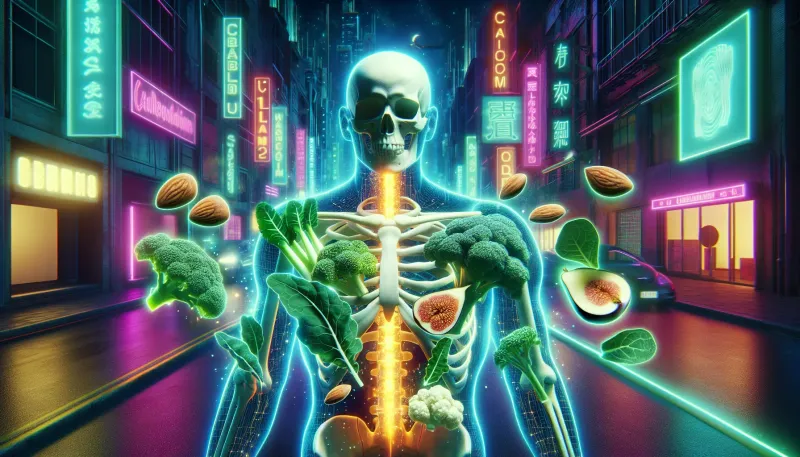How a Vegetarian Diet and Calcium Can Keep Your Bones Strong

Learn how combining a vegetarian diet and proper calcium intake can help maintain and enhance bone health.
Bone health is a crucial aspect of overall wellness, and it becomes even more important as we age. Many wonder whether a vegetarian diet, often perceived to be low in essential nutrients like calcium, can support strong and healthy bones. In this article, we will examine the relationship between a vegetarian diet and calcium intake and how together they can contribute to optimum bone health.
Understanding Bone Health
The Importance of Bone Health
Our bones provide structure, protect organs, anchor muscles, and store calcium. Healthy bones are fundamental to our mobility and overall health, especially as we age and the risk of osteoporosis and fractures increases. Maintaining strong bones necessitates a balanced diet rich in bone-supporting nutrients.
Key Nutrients for Bone Health
Calcium is not the only nutrient required for strong bones, though it is one of the most important. Other key nutrients include Vitamin D, Vitamin K, magnesium, and phosphorus. Each plays a role in bone formation, mineralization, and repair.
The Vegetarian Diet and Bone Health
What Constitutes a Vegetarian Diet?
A vegetarian diet excludes meat and sometimes other animal products. There are different variations, including:
- Lacto-ovo-vegetarian: Includes dairy products and eggs.
- Lacto-vegetarian: Includes dairy products but not eggs.
- Ovo-vegetarian: Includes eggs but not dairy products.
- Vegan: Excludes all animal products.
Potential Nutrient Deficiencies
One of the main concerns with a vegetarian diet is the potential for nutrient deficiencies, particularly in Vitamin B12, iron, omega-3 fatty acids, and calcium. However, with careful planning, vegetarians can meet their nutritional requirements effectively.
Calcium Sources for Vegetarians
Plant-Based Sources of Calcium
Dairy products are well-known sources of calcium, but there are plenty of plant-based options as well:
- Leafy Green Vegetables: Kale, broccoli, and bok choy are excellent sources.
- Fortified Foods: Many plant-based milks, juices, and cereals are fortified with calcium.
- Legumes: Beans, lentils, and chickpeas provide both calcium and other essential nutrients.
- Nuts and Seeds: Almonds and chia seeds are good sources of calcium.
- Tofu and Tempeh: These soy products are typically rich in calcium, especially when fortified.
Calcium Absorption Factors
Several factors can influence calcium absorption from plant foods:
- Oxalates and Phytates: Found in some plants, these compounds can inhibit calcium absorption.
- Vitamin D: Being vitamin D sufficient is critical as it aids in calcium absorption.
- Magnesium: A balanced intake of magnesium, another bone-health mineral, is necessary for effective calcium absorption.
Fostering Strong Bones on a Vegetarian Diet
Balanced Diet Planning
By incorporating a variety of foods, vegetarians can achieve a balanced diet that promotes bone health. Consider the following dietary strategies:
- Diversify your diet: Include a wide range of vegetables, legumes, nuts, seeds, and fortified foods.
- Pay attention to key nutrients: Ensure you're getting enough calcium, Vitamin D, Vitamin K, magnesium, and phosphorus.
- Supplements: Consider supplements if dietary intake alone is insufficient, particularly for Vitamin B12 and Vitamin D.
Weight-Bearing Exercise
In addition to diet, physical activity is fundamental for bone health. Weight-bearing exercises such as walking, jogging, and strength training stimulate bone formation and maintenance.
Conclusion
Adopting a vegetarian diet does not mean compromising on bone health; with properly planned nutrition, vegetarians can maintain strong and healthy bones. Ensuring adequate calcium intake through a variety of plant-based foods and supplements, along with engaging in regular weight-bearing exercise, plays a significant role in bolstering bone health. By understanding the interplay between diet and bone health, vegetarians can confidently pursue a plant-based lifestyle while nurturing their skeletal strength.



























